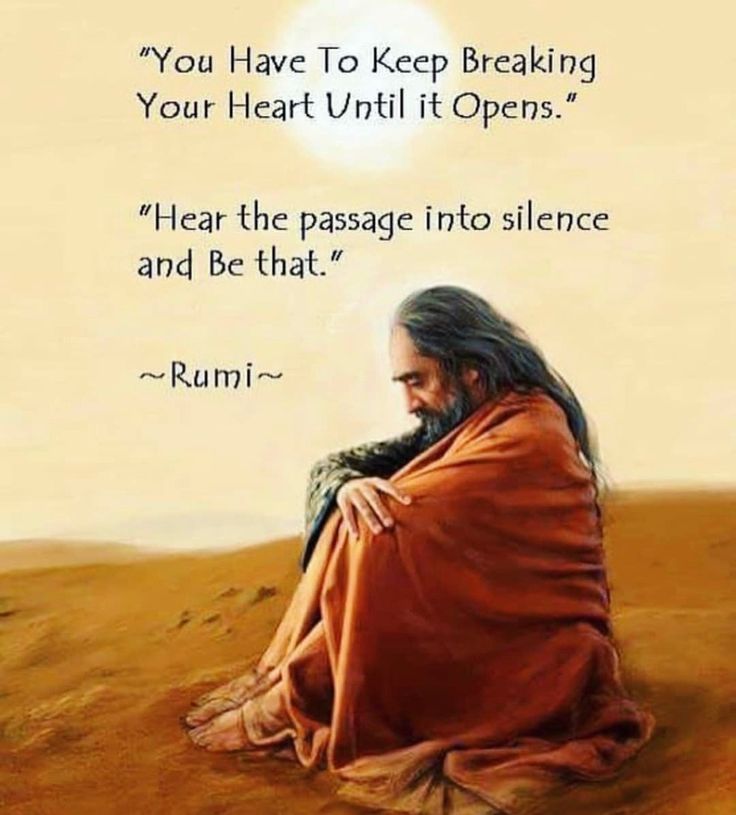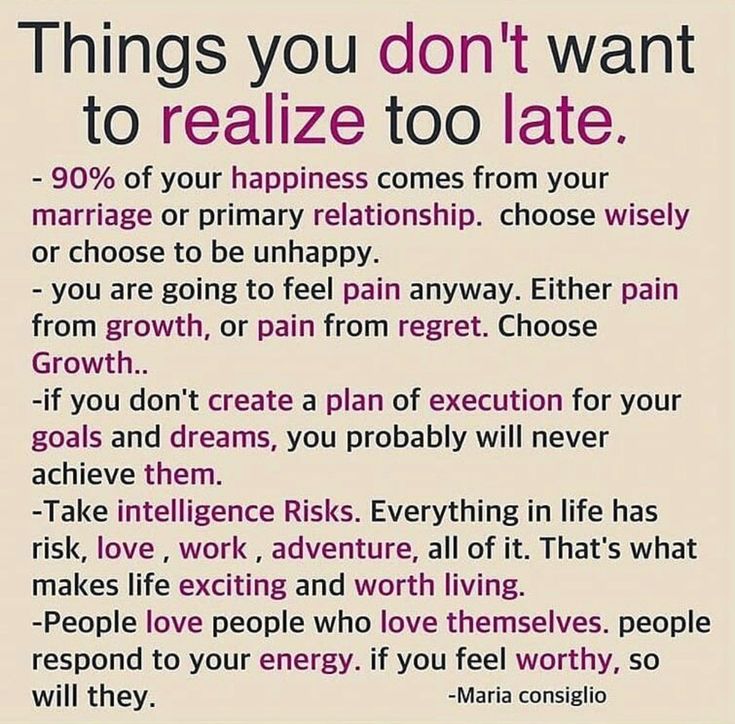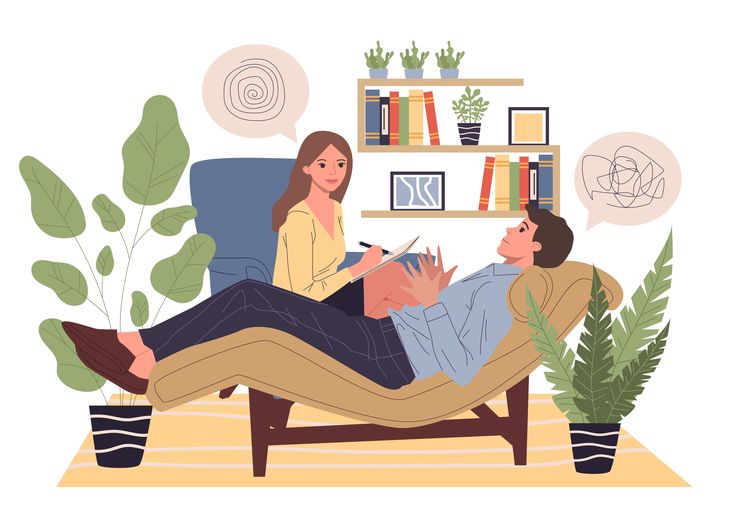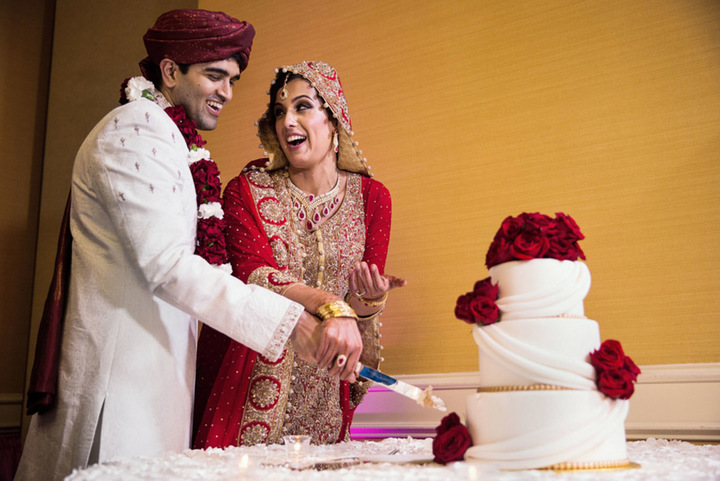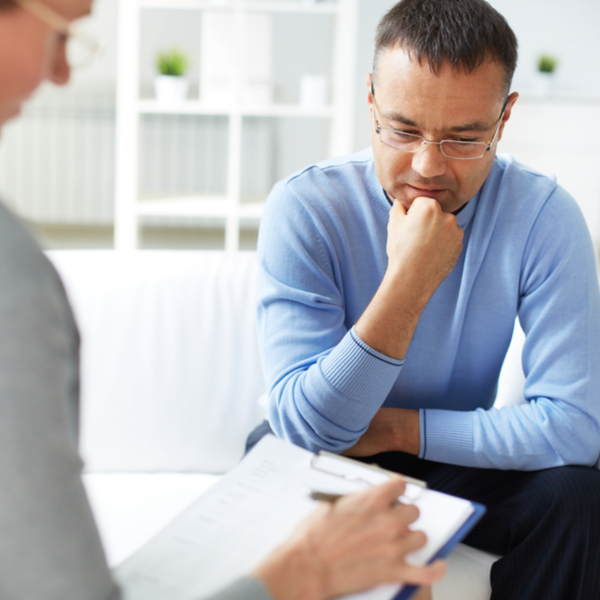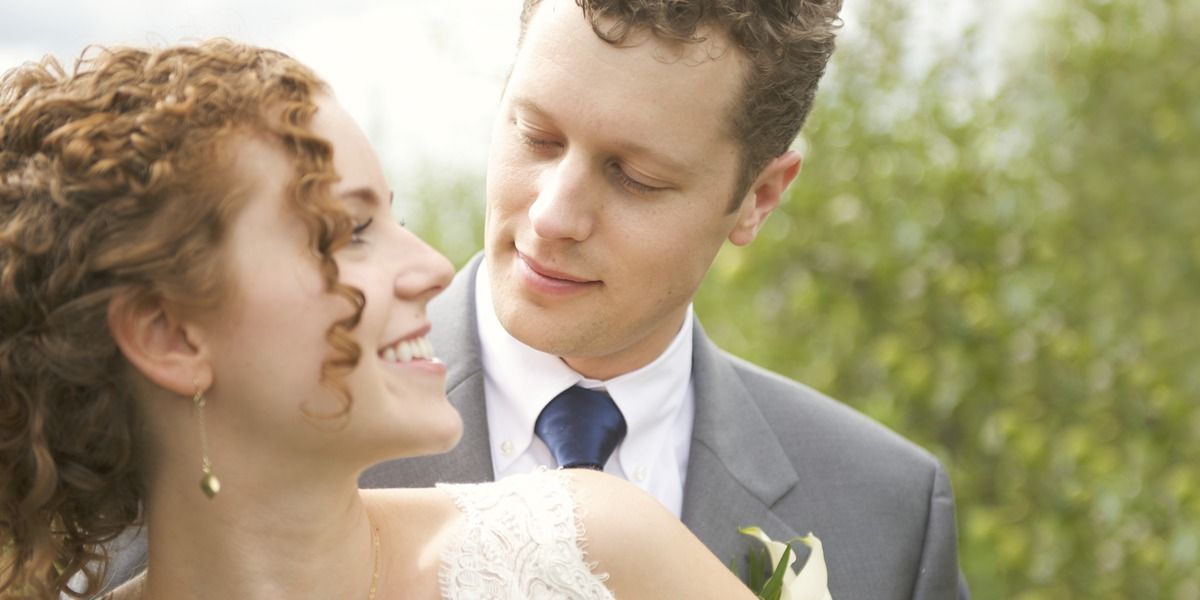Can codependent relationships be saved
How To Stop Being Codependent
Attachment issues like codependency can cause unhealthy relationship patterns in which you rely on your partner for providing your happiness, approval, self-esteem, and sense of identity. They become your world. You may think and feel responsible for other people's feelings, actions, wants, and choices. You may struggle with self-care or have a hard time with self-worth. Your partner is anything and everything to you, giving you your confidence and reason for existence. Of course this can be an exaggeration for some but, if this sounds familiar or if you're in a relationship like this, read on. This article will cover ways of regaining self-assurance and independence. Continue reading for helpful tips on overcoming attachment and relationship issues recommended by experienced experts in the field. Know for a fact you don't need to suffer, and you are not alone, especially with a resource like online therapy. Codependency is common and not something to be afraid of.
Codependency Is An Unhealthy, Unbalanced Connection - Break The Cycle Let's Talk. Click Here To Get Matched With A Licensed Therapist
Are You Or Someone You Know Codependent?
Historically, codependency has been defined within the context of a relationship. Typically, one party lives with some sort of complex issue such as:
- Alcoholism
- Drug addiction
- Gambling addiction
- Mental health condition
- Poor physical health or disability
- Irresponsibility/Constantly Tries to Avoid Responsibility
The codependent individual would then care for the partner and their condition, taking the responsibility as their own. Examples include a codependent wife purchasing beer for her alcoholic husband to avoid him getting upset, or a codependent parent rescuing their adult child from the financial consequences of their irresponsible decisions. These tendencies can begin in childhood for many children requiring constant attention from their parents, but continue into adulthood when the partner treats their emotions as their partner's and you can't separate from each other in healthy ways.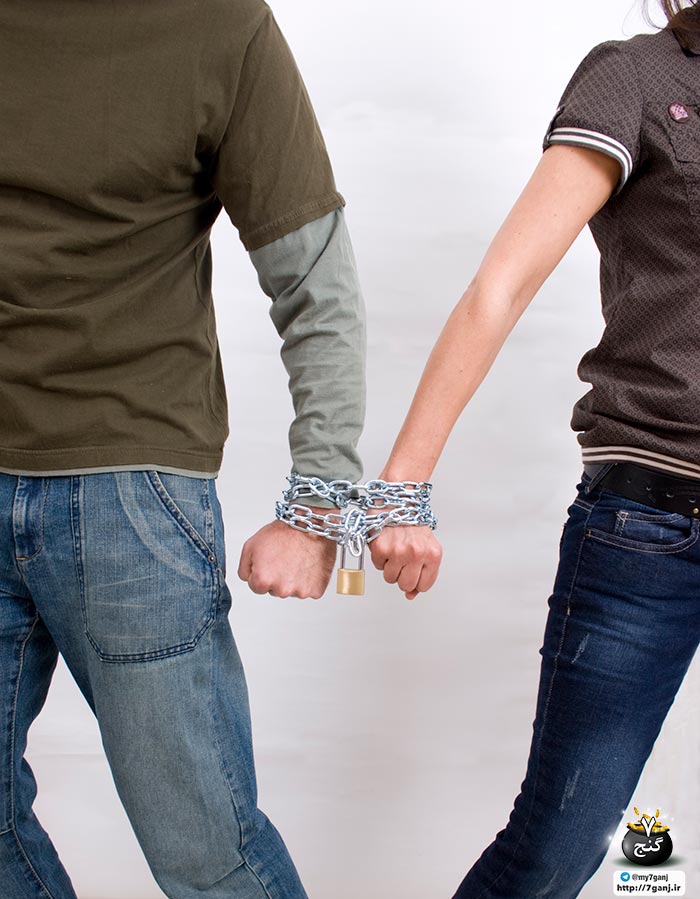
These relationships show codependence, for the most part, one-sided types of codependency. The codependent individuals give much more than they receive, and the result is an unhealthy balance of codependence for both people in the relationship and does not leave room for much of anything besides worry and guilt. The partner can avoid dealing with the complex issue and the codependent partner becomes emotionally exhausted and starts feeling hopeless about any chance of change.
The concept of codependency has evolved to become more of a "personality type" rather than existing solely within a relationship. Being raised in a dysfunctional or emotionally unhealthy home can cause people to become codependent and seek out additional codependent relationships, rather than stay insecure and lonely. The original definition of codependency was someone with a dependent attachment style who has difficulty with understanding their own needs outside of someone else.
Characteristics of a codependent individual are:
- Caregiver
- People-pleaser
- The trouble with emotional intimacy
- Sense of responsibility for other's feelings
- Fear of rejection
- Fear of being alone
- Taking any negative comments or criticism as a personal attack
If you have been in a codependent relationship for a long time, you may find it hard to accept that you are powerless in changing another person. Someone who is in a codependent relationship with a person who has alcoholism or drug addiction, for example, typically believes that if they just say and do the right things, their partner will stop and get their life on track. Then they can stop both of their suffering and won't be worried anymore. Codependency arises from a need to regain control over an out-of-control situation. It's important to remember that you are the only person you can change. Your own needs are just as important, even though you likely have good intentions in your relationships.
Someone who is in a codependent relationship with a person who has alcoholism or drug addiction, for example, typically believes that if they just say and do the right things, their partner will stop and get their life on track. Then they can stop both of their suffering and won't be worried anymore. Codependency arises from a need to regain control over an out-of-control situation. It's important to remember that you are the only person you can change. Your own needs are just as important, even though you likely have good intentions in your relationships.
- Research: Learn more about codependency, what it is, and what it is not. There are lots of self-help books on codependence. As you learn more and acknowledge your codependency, it will be easier to identify when your thoughts and actions are codependent and need to be adjusted so you can think more healthily and avoid codependence. You will learn self-growth and how to be okay with alone time.
 A great book to start with is Codependent No More: How to Stop Controlling Others and Start Caring for Yourself by Melody Beattie.
A great book to start with is Codependent No More: How to Stop Controlling Others and Start Caring for Yourself by Melody Beattie. - Recognize: As you learn more about codependency and how to stop being codependent, be on the lookout for words, feelings, thoughts, or behaviors that you engage in that are codependent. Identify and reframe the codependence-type thoughts in your mind "My husband is mad today, but his happiness is not my responsibility. I do not have to feel anxious because he is having a hard day." That's an example of a way you can reframe a previously codependent thought and avoid codependence.
- Regroup: After you've identified a codependent thought or action, choose to replace it with a healthy one. It will be difficult at first to not practice codependence - especially because your partner has come to rely on you for unhealthy support around their issue feeding into the codependence - but learning to avoid codependence will make you feel healthier and more empowered.
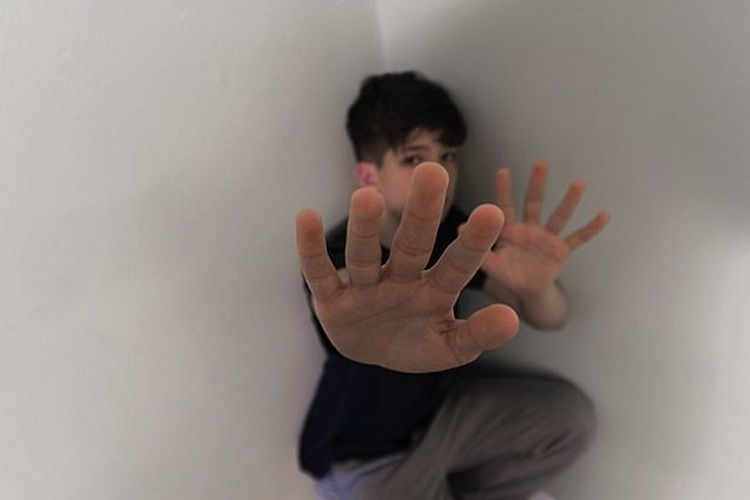
Usually, by the time a person realizes they are displaying traits of codependency, these codependence patterns are deeply established. While you're the only one who can change your life to avoid codependence, support can be an invaluable part of the process of changing codependence. A counselor knowledgeable in codependency can help you navigate your way through codependence.
Codependency Recovery
If you have been codependent or in codependent relationships for a long time, you may have a hard time letting go of the idea that you can't change another person. It is very hard to stop being codependent, but not impossible. A person who is codependent with an alcoholic typically believes if they say and do the right things, their partner will stop drinking and get their life on track. Someone who is codependent with a mentally ill person who isn't trying to manage their illness may feel that the other person won't be able to do better unless they push them or make sacrifices to keep them calm.
However, people who have these and other complex issues don't learn how to get better when they have someone catering to all their unhealthy desires and fostering their unhealthy behaviors. When the caretaker partner provides the partner with complex issues with everything that they need and sacrifices their wellbeing in the process, this is called "enabling" and can lead to codependence. When you enable someone who is codependent they don't have the opportunity to grow or get better and this often leads to codependence. This person never has to face the consequences of their behavior, so they never have the chance to grow as a person. Whether they're your romantic partner, your friend, or a close relative, you can't change them by making allowances for them.
The good news is that you can save yourself and avoid codependence. A counselor can teach you how you can identify the behaviors that are keeping you locked in codependency. They can encourage you to put your needs first so you can become stronger, more self-confident, and more emotionally healthy and how to avoid codependence.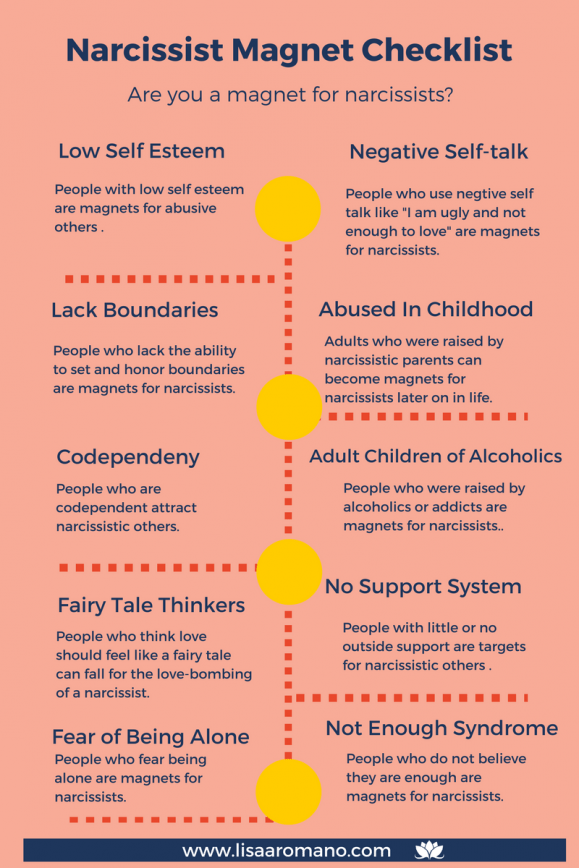 Always remember that taking care of yourself is the healthiest thing you can do. After all, when you don't take care of yourself, someone else has to, putting you on the other end of the codependent relationship.
Always remember that taking care of yourself is the healthiest thing you can do. After all, when you don't take care of yourself, someone else has to, putting you on the other end of the codependent relationship.
Impact On Others
If you stop playing the role of caregiver with the other person, you allow them to learn and grow and avoid codependence. This can be very difficult for them as well as difficult for you to watch as you start to change the codependence in the relationship. However, this sort of "tough love" will help both of you grow as people emotionally. During this process of changing codependence in a relationship, their demands may get more vocal or even more aggressive.
Whatever happens, you need to remember it isn't your responsibility and avoid taking ownership of someone's else feelings. You can care about them but being their caregiver won't help them conquer and no longer avoid their issues. Instead, once they realize that they are causing their problems, they might take the actions needed to change themselves.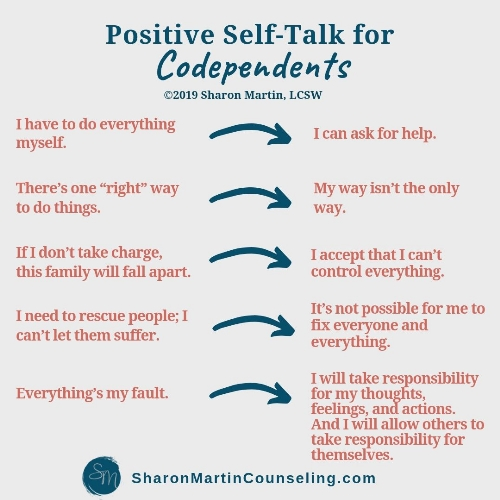 If not, you'll have to decide whether to continue in your old codependence ways or free yourself from their issues.
If not, you'll have to decide whether to continue in your old codependence ways or free yourself from their issues.
You might indeed be able to salvage a codependent relationship without going back to being codependent. However, you can't change codependence alone. The other person must do their part as well to avoid codependence. The goal is to have an interdependent relationship in which both people give something to the relationship and also benefit from the relationship.
Codependency Is An Unhealthy, Unbalanced Connection - Break The Cycle
Let's Talk. Click Here To Get Matched With A Licensed Therapist
Stopping and changing a codependent relationship is no easy task. A counselor can guide you through the process to end codependence as you both learn new ways of thinking and behaving that are different to avoid codependence. You can have some effect simply by acting in ways that aren't codependent. Yet, if the other person's actions show that they aren't interested in a healthy relationship and don't want to learn how to stop codependency in the relationship, then at some point you will need to decide if staying in that situation is beneficial for your mental health.
After you research and understand more about codependency, you might conclude that your codependency didn't start with your current relationship. It could be a result of many relationships over time, or family trauma. You can even experience codependency with a close friend. Codependence may have been your pattern for as long as you can remember. If so, it's even more important to not avoid going inward and shift your focus onto yourself, to what you need, and what makes you happy.
Longstanding patterns of codependence take time and effort to change and end. You might have to reassess and no longer avoid everything you thought about relationships in the past. You will need to learn to set limits and recognize when you’re being taken advantage of. You'll have to get to know yourself as an individual, perhaps for the first time in your life. The insights gained during this type of therapy which can help you no longer avoid these complex thoughts can be quite surprising and sometimes distressing.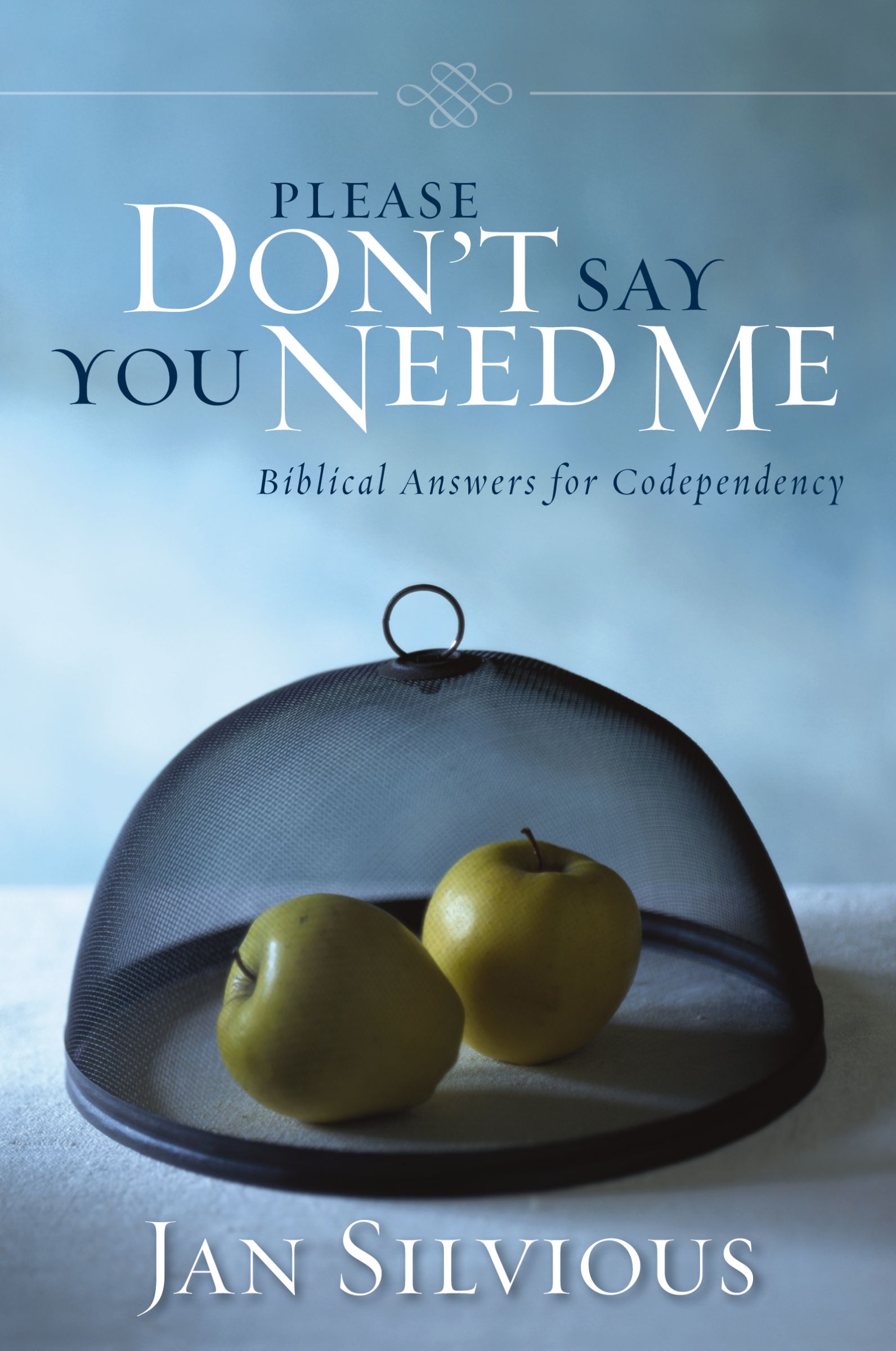 You might come to some epiphanies about yourself and the other person about codependence. Regardless of the realizations, you come to, a trained therapist will be there to support you as you rediscover and accept yourself for who you are. And that's one of the most important things to figure out after you break a codependent dynamic: who are you?
You might come to some epiphanies about yourself and the other person about codependence. Regardless of the realizations, you come to, a trained therapist will be there to support you as you rediscover and accept yourself for who you are. And that's one of the most important things to figure out after you break a codependent dynamic: who are you?
Being in therapy for codependency teaches you to value yourself. With the assistance of a counselor, you can learn ways of identifying codependent thoughts, behaviors, and feelings and replace them with empowering alternatives. If you stay in counseling long enough, you eventually leave counseling when you reach a time in your life when you understand that you deserve peace and happiness. Clients leave the practices of their therapists understanding the benefits of therapy and each of their sessions, providing them with skills and a strong state of mind. The services a therapist gives their client are priceless when it leads to a happier and healthier life for the client.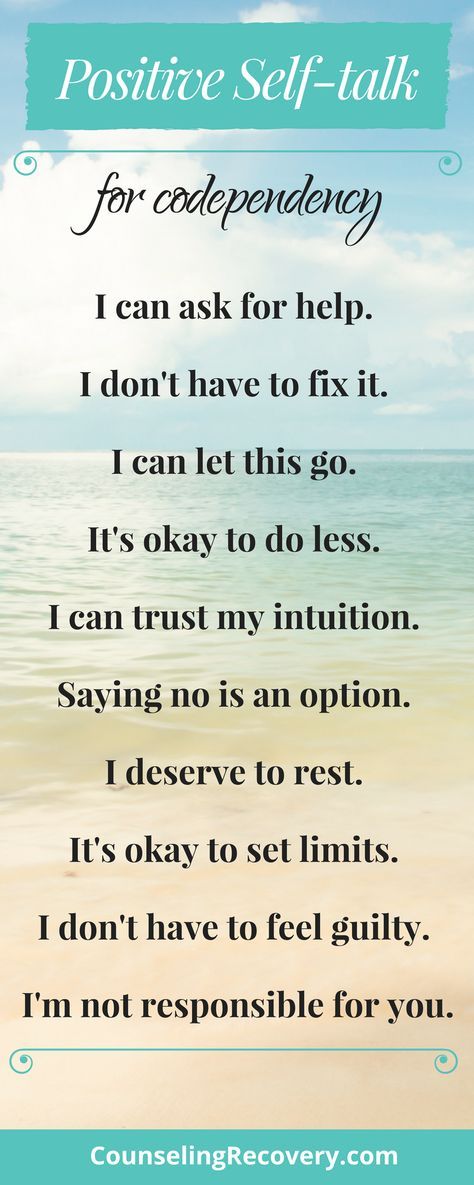
Once you learn to value your happiness, you'll be ready to leave and rebuild your life on solid ground. Your counselor can guide you as you build a network of support made up of healthy, independent people. You might decide to leave your job and begin a new career, go on a vacation alone or with mentally healthy friends, move to a new neighborhood, take up a new hobby, or simply rest as you reintroduce yourself to a new, healthier version of what used to be your codependent life. Your therapist will help you adjust to your new life and encourage you to work towards what you want. Read below for some reviews of BetterHelp counselors, from people experiencing similar issues.
Therapist Reviews
"As a victim of trauma I was told to find a very compassionate counselor and I am so grateful to her for having that quality and in a healthy manner as to not increase my codependency issues. Having trust issues as well, she never makes me feel ashamed when I tell her about really sensitive issues.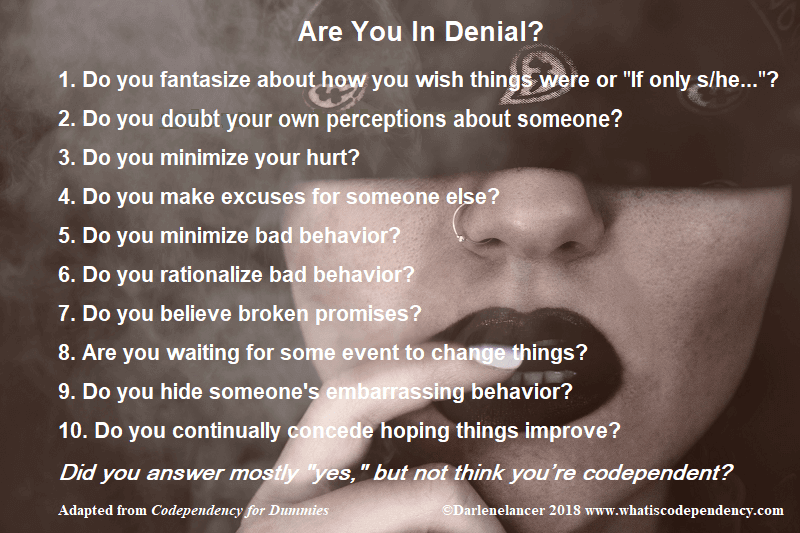 She is a great counselor and extremely knowledgeable in different aspects of therapy."
She is a great counselor and extremely knowledgeable in different aspects of therapy."
"Stephanie is a gem! She's very thoughtful, thorough, honest, insightful but most of all helpful. This is coming from a person that never wanted to do counseling and just "knew" I didn't need it. She's been key in helping my wife and me find our better place. She made us grow as a couple and individually. Thanks, Steph!"
Conclusion: How To Stop Being Codependent
Codependency is not only mentally unhealthy; it can even be dangerous. It’s essential to stop being codependent in relationships as soon as possible. The person who is dependent on you may sink deeper into their addictions or mental illness. This can sometimes lead to aggressive and hostile behaviors toward themselves and loved ones, including you.
You may say, "But that would never happen here!" You might be wrong about that but suppose you're right. Does that mean you want to continue in relationships that keep you bound in fear and sacrifice? Does it mean you don't want to be happy for yourself? Probably not, and the best way to make sure you have a life you can enjoy is to begin to make changes to get beyond your codependency.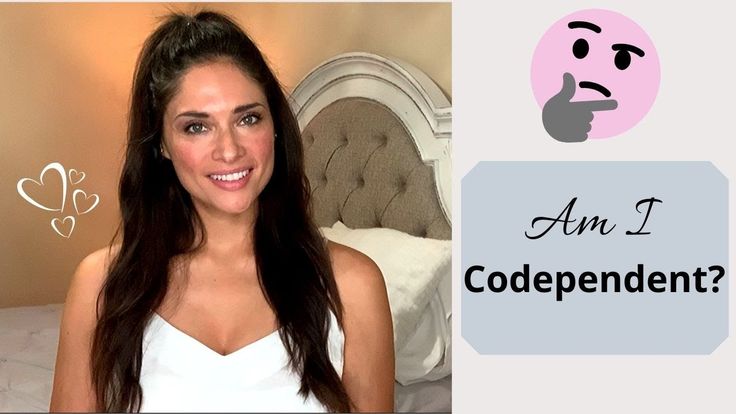
Long-standing patterns take time and effort. You will begin growing yourself as an individual, perhaps for the first time. Only you can decide what you want your life to look like and only you can go out and claim it. Take the first step to stopping codependent behaviors today.
Can A Codependent Relationship Be Saved? It Depends.
In any relationship – whether with friends or a romantic partner, there needs to be a healthy level of compromise for it to be safe and beneficial for everyone involved.
So, what happens when you find yourself compromising far more than the other person?
What happens when you feel paralyzed in making decisions without your partner?
If you’re beginning to notice signs that may point to codependency, you might be wondering if it’s too late to salvage your relationship. At what point is a codependent relationship deemed too far gone?
Can you ever come back from a codependent state?
In this article, we’re going to discuss all things codependency.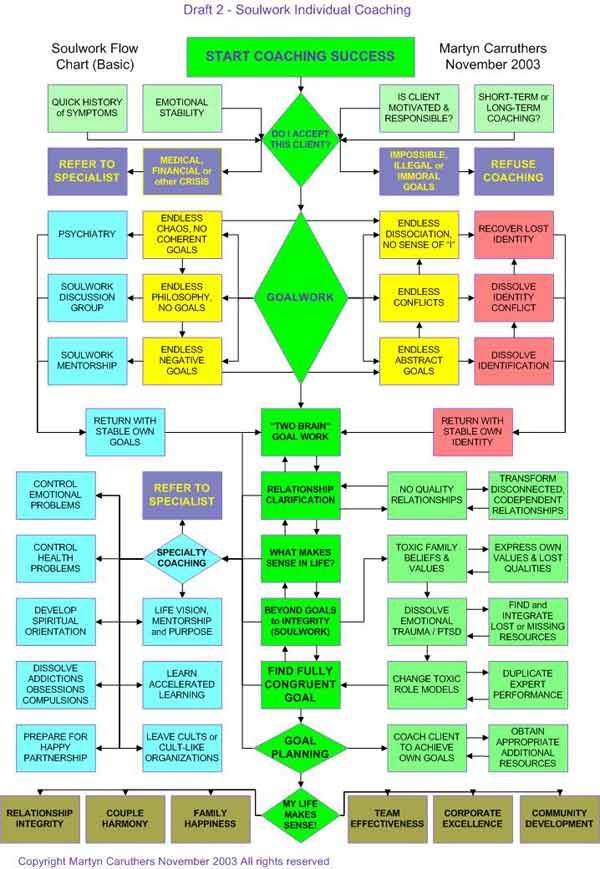
Let’s chat about codependency, the signs you may be in a codependent relationship, and how to overcome this toxic cycle and heal the bond between you and your loved one.
Table of Contents
- What Is Codependency In a Relationship?
- What Are Some Signs I May Be In a Codependent Relationship?
- What Causes Someone To Be Codependent?
- How Do Codependent Relationships End?
- Can a Codependent Relationship Be Saved?
- What Does Recovering From Codependency Look Like?
- Final Thoughts: Should I Just End My Codependent Relationship?
What Is Codependency In a Relationship?
If you were to look up synonyms for the word ‘codependent,’ you’d find terms such as ‘addicted,’ ‘attached,’ or ‘interconnected.’
Another way to describe this unhealthy type of bond in a relationship is mutually dependent.
While in a relationship, it’s natural to want to spend time with your significant other, go to events together, and eventually make big life decisions with one another.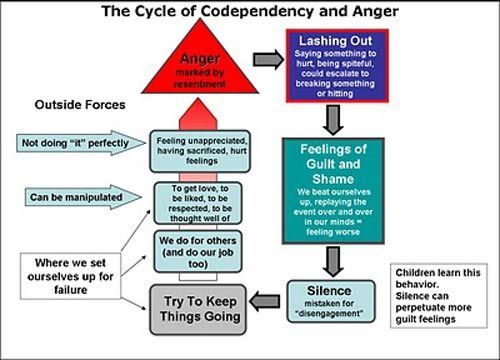
When this becomes toxic, you aren’t able to distinguish who you are from the relationship.
Codependency is an emotional and behavioral condition characterized by excessive reliance on another person. This reliance can be psychological or emotional and can easily hinder an individual from having a healthy relationship.
Can a codependent relationship be saved?A hallmark sign of any codependent relationship is the imbalance of effort.
In these situations, one person does the bulk share of the work and often loses themselves to satisfy the other. They will do whatever it takes to make the relationship work, even if it means abandoning their own wants, needs, or goals.
I found myself in a codependent relationship for almost five years in my early twenties, and it was one of the most emotionally and professionally stunted periods of my life. I should have been finding myself and thriving, but the relationship paralyzed me to the core. I ended up abusing alcohol to cope.
I ended up abusing alcohol to cope.
A few signs you may be in a codependent relationship include:
- You feel as though you need to save them from themselves
- You find yourself self-sacrificing often
- You find yourself neglecting your own needs
- You feel like you need to change who they are
- You feel selfish for taking time for yourself
- You feel as though your relationship is difficult to explain to others
- You feel anxious when you don’t hear from your partner
- You find yourself unhappy being alone
- You find yourself canceling your own plans often to spend time with your partner
- You feel as though your partner can do no wrong
- You find yourself needing constant reassurance from your partner
It’s important to remember that many of these feelings are normal in any healthy relationship however, the main difference is that they don’t stick around.
It’s normal to feel anxious when you don’t hear from them all day, but in a mature relationship, those feelings are fleeting as you feel secure in yourself and your partner.
In a codependent relationship, these feelings take over and can even ruin your entire day.
You may spend all night worrying that they will leave you or end the relationship. This may disrupt your basic human needs for sleep, food, or self-care.
More>> Shadow Work Prompts for Self-Care
What Causes Someone To Be Codependent?
Our childhoods play a massive role in who we become as adults. As with many behavioral patterns, being codependent in relationships often stems from how we were raised.
As children, we learn how to treat others, form bonds, and keep attachments based on how we perceive our parents caring for us.
If we were raised in homes with overprotective parents or under protective, we might end up becoming adults with an excessive need to rely on others. Let me explain:
Overprotective and Under-Protective Parenting Explained:
Overprotective parenting can create codependent adults that stem from children who were always shielded from the world’s dangers.
As a child, you may have relied heavily on your parents to tell you what was safe or unsafe to do and, therefore, never gained the self-confidence to try new things or make independent decisions.
If you were always coddled as a child, it’s likely you grew into an adult that never learned how to regulate your own emotions without the help of others.
On the flip side…
Under-protective parenting can thus create codependent adults that stem from never receiving the nurture and care they needed as a child.
In healthy child-parent relationships, a solid foundation of independence blossoms into self-confidence.
When a child is left to fend for themselves, they may feel incredibly alone and unsafe in the world. So, they may need another person to ‘cling’ to feel safe when they become adults.
In addition, many adults who display codependency in relationships come from households where one or more parents struggled with mental health problems or addiction/substance abuse.
As the child grew older, they quickly learned to neglect their own needs and wants to take care of their parents. In these situations, the child tends to become the caregiver, and the roles are reversed. This can cause them to grow into adults that always need to ‘fix’ others.
How Do Codependent Relationships End?
Ending a codependent relationship is incredibly difficult and oftentimes painful. It involves a great deal of inner work and recognition of the toxic behaviors within the relationship.
If you’re the person suffering from feeling codependent, you may:
- Feel guilt or shame about needing to end the relationship
- Worry about how the other person will care for themselves without you
- Give in when your partner pleads for you to stay
- Find yourself going back time and time again
Codependent relationships often end when the other person’s addictive or self-destructive behavior becomes dangerous or abusive or when the codependent person begins to realize the toxic pattern they’re stuck in.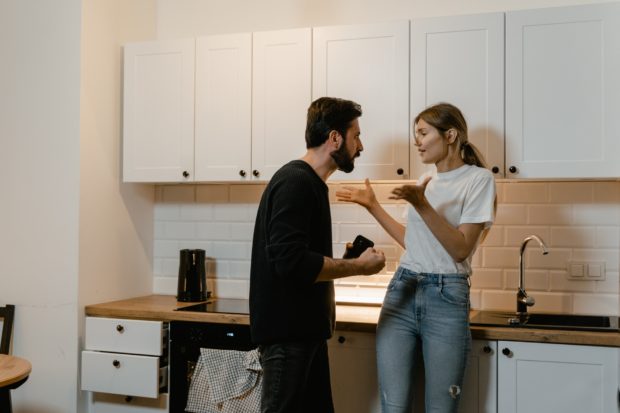
It’s likely you may begin to see your choices.
Love is blind. Codependent love can feel paralyzing.
You may slowly realize you have a choice in how your life plays out. You may realize that you don’t have to live in a relationship that takes far more than it gives.
It may be scary at first to begin to lift the veil that has blurred your vision for so long, but once you do, it’s difficult to unsee those things.
Access should not be a barrier to help.
Visit BetterHelp
Can a Codependent Relationship Be Saved?
While it may be difficult to explain why you’ve stayed in a codependent relationship for so long, sometimes the heart wants what it wants. In this situation, you may wonder if your codependent relationship can ever be healthy.
A codependent person, by nature, plans their life around their partner and their relationship.
Whether you realize it or not, you probably make all decisions in life with your partner in mind.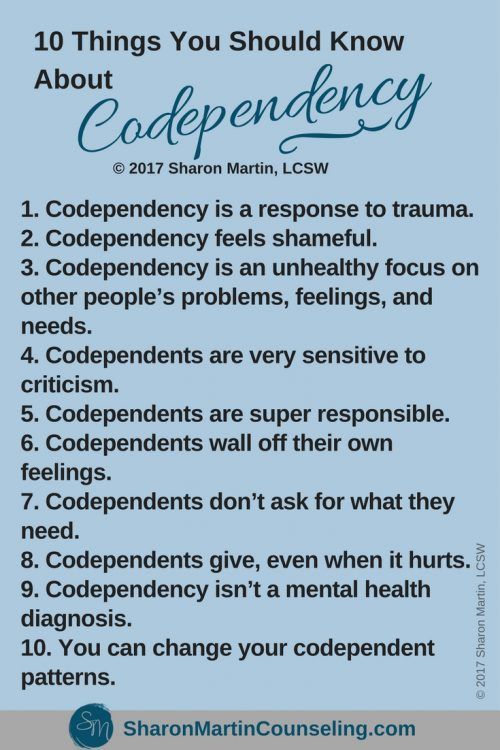 You’re always trying to please them, or at the very least, keep the peace with them.
You’re always trying to please them, or at the very least, keep the peace with them.
This has to be taken care of before a codependent relationship can be healthy again.
If you’re the codependent one, it will take inner work and even professional help to heal years of codependent behavior. You’ll likely have to unlearn many behaviors you exhibit in your everyday life (not just with your partner!).
If you’re on the other side and your partner is codependent, they will have to work to fix this part of themselves. Therapy is a wonderful option for those struggling with codependent behaviors.
Once this aspect of your relationship is fixed, you and your partner can move on to setting boundaries, laying out expectations, and healing from your past. But it all starts with inner work.
Relationship therapist, Michelle Farris, has a helpful take on this topic, which I’ll drop for you here:
A few ways to create a healthier relationship amidst codependency are:
- Communication: Be brutally honest with your partner.
 Let them know you realize your relationship dynamic is unhealthy. Show them the work you’re doing to fix your behaviors. Let them in on your healing journey.
Let them know you realize your relationship dynamic is unhealthy. Show them the work you’re doing to fix your behaviors. Let them in on your healing journey.
- Make Your Own Decisions: This may feel scary or uncomfortable at first, but when an opportunity presents itself – make a decision for yourself, not them. If your friend asks you to go out for drinks Thursday night, instead of calling your partner to ask if you two are going to have plans, do what you want to do. The more you build a life outside of just your relationship, the less time you will have to be entirely dependent on it.
- Find What Makes You Happy: Have you always had a love for painting? Or, maybe you’ve always wanted to try snowboarding. Find something outside of your relationship that makes you happy, and do it. Once you realize you can make yourself happy outside of what your partner wants, you’ll need to rely solely on them for joy.
 This will benefit both of you in the long run – some space in a relationship is healthy.
This will benefit both of you in the long run – some space in a relationship is healthy.
More>> Why Do I Get Angry At My Boyfriend When I Drink Alcohol?
What Does Recovering From Codependency Look Like?
Even if your relationship ends, codependency will not simply go away on its own. The behavioral patterns associated with codependency will jump from one relationship to another. This is why working to recover from codependent tendencies is so important.
Thankfully, you can recover from codependency to move forward with happier and healthier relationships.
Here is what recovery may look like for you:
Reading About Attachment Styles:Knowledge is power. Many people with codependent behaviors have an anxious attachment style.
They fear that people will leave them as they were in childhood, so they people please and often sacrifice their own desires to keep those they love close to them.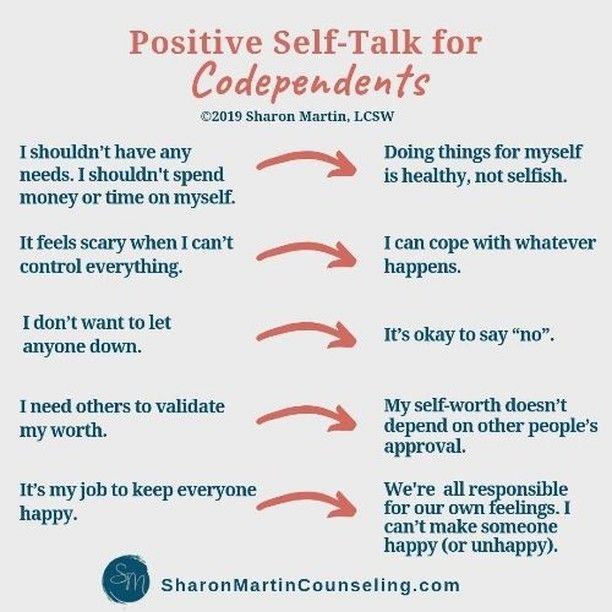
Reading and finding resources to help you overcome this attachment style can help greatly understand why you act the way you do and how to overcome this.
Here are a few suggestions to get you started:
- Attachment Theory in Practice by Susan M. Johnson
- The Power of Attachment by Diane Poole Heller, PhD
- Wired for Love by Stan Tatkin, PsyD
- Attached: The New Science of Adult Attachment by Amir Levine, MD, and Rachel Heller, M.A.
If there aren’t any support groups around you, many podcasts and social media groups are dedicated to healing from codependent behaviors.
Finding others like you can help you get the support and advice you need from those who have walked this path before.
While it’s important to have a support system of friends and family, there’s something powerful about having encouragement and words of wisdom from others that have struggled with the same problem.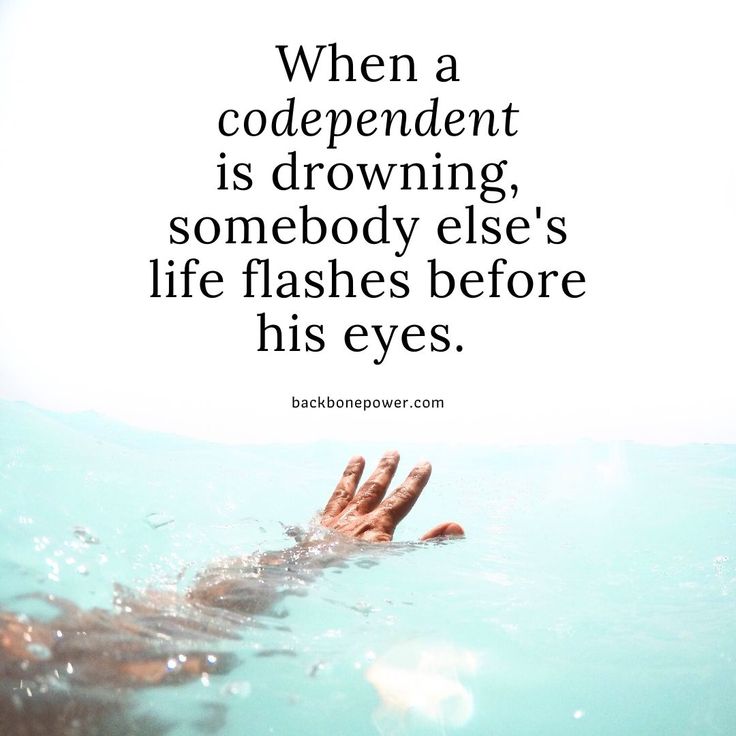
If you’ve struggled with being codependent your entire life, it’s likely you’ve never truly taken time to care for yourself.
Practice self-care techniques like meditation, journaling, reading, or indulging in a new hobby.
The more you spend time loving yourself, the more comfortable you will be in being alone. When you begin to feel confident being alone, you will need less dependence on another person for happiness.
Find Ways To Manage Your Anxiety:Breaking free from a codependent relationship is by no means easy. It may provoke debilitating waves of anxiety, at least at the beginning.
You’re detaching yourself from something that has become your entire identity – it is normal to feel this way.
Talk to a medical professional about possible treatments for anxiety, or utilize at-home tips like exercise, journaling, or yoga to help manage those intense feelings.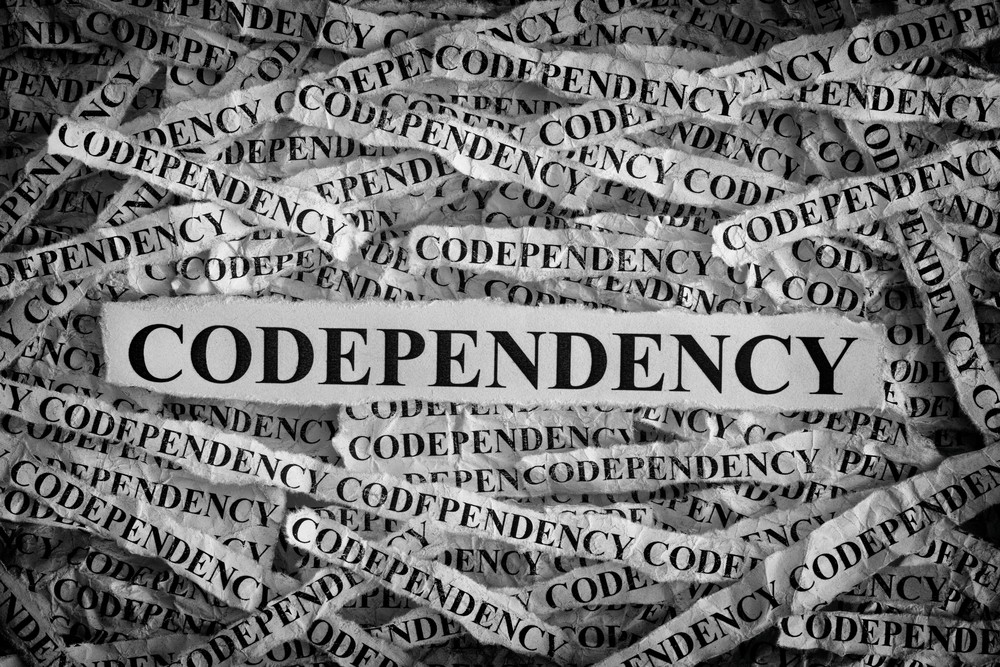
Final Thoughts: Should I Just End My Codependent Relationship?
Let’s take a minute to review what we just discussed.
While every relationship requires a level of dependence, there is a fine line to walk. In codependent relationships, one person is so reliant on the other that they depend on them for decision-making, happiness, emotional and mental security, and more.
It becomes a problem when one person relies too heavily on another to make them happy. In most cases, the codependent person is willing to set aside their own wants and needs to make the relationship work.
When this happens, a toxic cycle begins.
However, codependent relationships are not doomed forever. They just require intention and work.
It is not easy to overcome tendencies often rooted in childhood, but it is possible. First and foremost, you and your partner must sit down and communicate about the unhealthy patterns you’re witnessing.
Once this is done, there needs to be a mutual agreement to work on creating a healthier dynamic.
If both you and your partner can work together to heal from past behaviors, work on creating lives outside of the relationship, and communicate when problems arise, there’s no need to jump ship just yet.
Just remember: you’re not alone.
Many therapists are ready to help you and your partner work on breaking these codependent cycles, as well as support groups, podcasts, and books to get you on your way to becoming a healthier and more independent version of yourself – for both you and your relationship.
Resources:
- https://www.makinwellness.com/how-to-overcome-codependency/
- https://health.clevelandclinic.org/codependent-relationship-signs/
- https://sunbehavioral.com/delaware/the-causes-of-codependency/#:~:text=Codependency%20issues%20typically%20develop%20when,be%20independent%20in%20the%20world
2 shares
"Save cannot be finished.
 " Family psychologist about dependent relationships
" Family psychologist about dependent relationships We have already raised the topic of crises in relationships. The family psychologist told me that conflicts are normal, explained how they appear and how you can get out of them. A separate and at the same time very common cause of protracted family crises can be co-dependent relationships in a couple. What to do when it seems that the partner is pulling away and we really do not have enough intimacy with him? Or, on the contrary, when you want to have more personal space, and the second person constantly requires attention? About this, about the types and causes of unhealthy co-dependency relationships, as well as about true love, says a family psychologist, candidate of psychological sciences Natalya Olifirovich.
"All our relationships are dependency relationships"
- In fact, all our relationships are relationships of dependence. But she is healthy and unhealthy.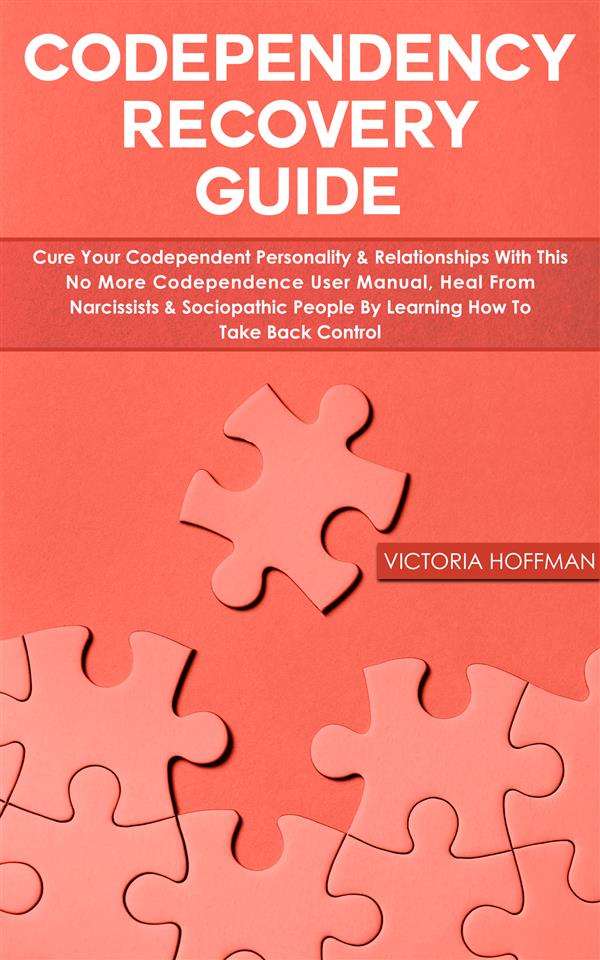 We are all born helpless, and if no one takes care of us, we will die. Therefore, our very first state is neediness and dependence on another person who takes care of us.
We are all born helpless, and if no one takes care of us, we will die. Therefore, our very first state is neediness and dependence on another person who takes care of us.
If everything goes according to plan, when the child grows up, he moves from complete merging with the mother - dependence - into the phase of counter-dependence. He tries to run away from her, argue, swear, tries his hand at defending his own Self. Then comes the phase of independence. And when a person grows up, in the case of a “healthy” development, he moves to the stage of interdependence. A person understands that there is neither complete independence nor complete dependence. All our life we are between two poles: between greater freedom and greater involvement in relationships.
Scientists distinguish between two types of addiction: healthy and unhealthy. Healthy addiction, or healthy attachment is when we feel good in a relationship . When we respect a partner, his needs, but at the same time we understand our desires. When we can be both in closeness and apart. When can we negotiate? When we can conflict, be offended and put up.
When we can be both in closeness and apart. When can we negotiate? When we can conflict, be offended and put up.
Merger with partner
There are three types of unhealthy addictions. Anxious-ambivalent, or fusion type , is when I “cling” to my partner and do not want to let him go anywhere. Most often, this type of dependence is observed in people who in the earliest period of life lacked maternal warmth, love, confirmation of importance and significance. Such a child grows up with the following belief: "If I don't keep a firm grip on someone who is important to me, I will definitely be abandoned" .
Relationships with such a partner are difficult. He is constantly trying to control the other, climbs into the soul, notices any nuances of behavior and tries to keep the partner close. It’s as if he doesn’t have his own world, but only a partner whom he tries to “glue” to himself with different types of superglue: threats, indispensability, self-sacrifice.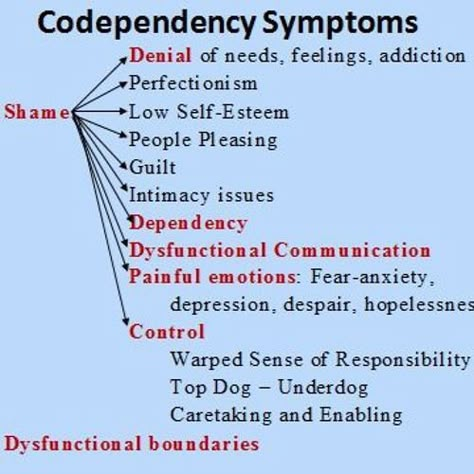 This is a disaster, because such a person is not confident either in himself or in the fact that his relationships with others can be reliable. Most often, these people become emotional persecutors.
This is a disaster, because such a person is not confident either in himself or in the fact that his relationships with others can be reliable. Most often, these people become emotional persecutors.
Proximity avoidance
- Another type - avoiding, or distancing . Such people have the following belief: “I will run away and stay away from you because I don't believe that relationships can be good. I know that you will leave me someday, and in order not to hurt me, I will never let you get too close. . Such people in childhood also experienced the absence of a significant person, but made a different decision: "I will never again let someone hurt me so much" . In a relationship, they give the impression of frostbitten, chilly people who keep you at a distance all the time.
This type is more typical for men, while the anxious-ambivalent type is more typical for women. It is these people who form wonderful pairs of "persecutor and distanced. "
"
Chaotic dependency type
- There are still people with a chaotic type of attachment. These people have a combination of sticking and running. These are the most difficult partners. In the evening he can come and say: "You don't love me because you don't pay attention to me" . But as soon as you start talking to him, he goes into the room, slamming the door, and asks you not to disturb. He alternates showing love with rejection. It is very difficult to build relationships with such people, because you never know what will come to his mind in the next second.
Relationships between people with different types of addiction
- All people with unhealthy types of attachment, of course, enter into relationships and begin to play their roles. The most frequent marriages are "pursuer-avoidant". Usually in such cases we help by softening the persecutor and involving the distancer in the relationship . If two people are colder and more distant, each can have their own life. If there are two pursuers in a relationship, then there will be constant scandals and “Italian” showdowns. People with a chaotic attachment type are difficult in any partnership because they are unpredictable and often belong to the borderline level of personality organization.
If there are two pursuers in a relationship, then there will be constant scandals and “Italian” showdowns. People with a chaotic attachment type are difficult in any partnership because they are unpredictable and often belong to the borderline level of personality organization.
When a couple comes to a psychologist, the first thing we do is to find out what a typical cycle occurs between them and how they are involved in it. The cycle can be aggravated if one of the partners is alcohol or drug addict. Then we don't work until the main problem is solved. The main thing in our actions is to identify the destructive cycle, when one pursues, and the other runs away, and help change it to a more constructive one, when they can approach, move away, and negotiate.
"Actually we are all addicts"
— Now, quite often, at various trainings, addiction is made the most terrible thing, women are “treated”, repeating to them either about complete freedom, or about complete independence.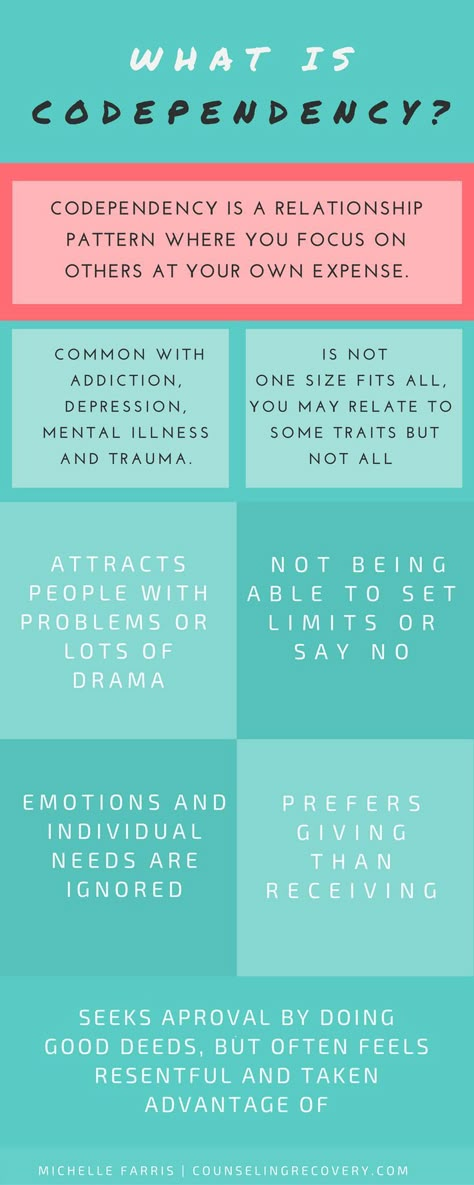 In fact, this is all wrong, because in any couple you need to deal with relationships. For example, people are satisfied with such relationships, he likes to watch Sex and the City with her, and she likes to go to football with him. They, like Sherochka and Masherochka, spend a lot of time together. And then this type of psychologist comes, like a knowledgeable one, and declares: “Yes, you have a co-dependent relationship! You must build your boundaries!" And suddenly the woman begins to figure out what she really wants, to quarrel with the man.
In fact, this is all wrong, because in any couple you need to deal with relationships. For example, people are satisfied with such relationships, he likes to watch Sex and the City with her, and she likes to go to football with him. They, like Sherochka and Masherochka, spend a lot of time together. And then this type of psychologist comes, like a knowledgeable one, and declares: “Yes, you have a co-dependent relationship! You must build your boundaries!" And suddenly the woman begins to figure out what she really wants, to quarrel with the man.
At this time in family therapy there is a golden rule: "Don't fix what isn't broken" . We do not climb where people are satisfied with everything. Let them merge, but if they are not satisfied with the distribution of responsibilities, then we work only with this.
Therefore, one should not be afraid of the word “addiction”. In fact, we are all dependent on each other. If, for example, some Uncle Petya at the power plant suddenly turns off the light, we will immediately understand how we are connected with him. If the neighbors from above decide to flood us, we will again feel these fragile invisible ties. Similarly, husbands and wives, partners are related to each other.
If the neighbors from above decide to flood us, we will again feel these fragile invisible ties. Similarly, husbands and wives, partners are related to each other.
Our task is to help “translate” an unhealthy addiction into a healthy one. Then people understand that relationships are dynamic and changeable: sometimes we are closer, sometimes we merge, and sometimes we move away; and it's wonderful that we are so different and can change all our lives and look for a comfortable distance in a relationship.
How attachment differs in the West and East
- Often the word "addiction" is used only in a negative context. If we use the concept of "healthy addiction", then there are no questions. You need to understand that the same word can be used in different ways. We remember drug and alcohol addictions, and this word becomes bad for us. In fact, it's great when we depend on each other, need each other and are important. Therefore, there is nothing to worry about if there is a healthy attachment between people.
By the way, the word “attachment” also raises many different questions. The same Buddhist philosophy is very struggling with attachments, and the influences from the East often influence our people. If we are independent, we will all live alone in caves and return to the primitive communal system.
It can be noted how vividly the Western model is presented today, where two people think a lot about the need to get married and have children. These are people with an unhealthy, distant type of dependence or attachment. They are afraid to enter into long-term relationships, afraid of intimacy and losing their comfort. And another option is the Eastern model, where family ties, blood and marriage ties are very important. In such a culture, people take care of each other, support family members. Of course, these are more likely trends, because both in the East and in the West, rapid changes are taking place.
We are now in a period of restructuring of relations.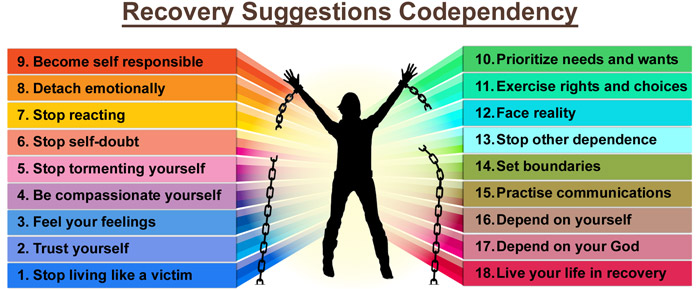 The old patriarchal relations in our country, Western Europe and America are becoming obsolete, while new ones have not yet been formed. Therefore, men and women are now learning to live together in a new way. They are at the very beginning of such a difficult path to a healthy addiction - attachment.
The old patriarchal relations in our country, Western Europe and America are becoming obsolete, while new ones have not yet been formed. Therefore, men and women are now learning to live together in a new way. They are at the very beginning of such a difficult path to a healthy addiction - attachment.
Dealing with an unhealthy addiction
- There is always an opportunity to cope with addiction, to get rid of the roles of the pursuer - the avoider. There is a whole area - emotionally focused therapy - an effective model of working with spouses, developed by Canadian psychologists . This model helps people form healthy attachments. When she appears, a man and a woman become a couple in which you can lean on each other, support each other, care for and love, which is very cool.
To achieve this, the couple can read emotionally focused therapy literature. There are many articles on the Internet on this subject. Even the therapy model itself provides for reference to the literature. You can deeply study the family of another partner, understand why he pursues or moves away, notice destructive cycles in your own couple and try to change them to constructive ones. Of course, you can always contact a specialist in family therapy. But it must also be carefully chosen so as not to get to a person who will aggravate a difficult situation.
You can deeply study the family of another partner, understand why he pursues or moves away, notice destructive cycles in your own couple and try to change them to constructive ones. Of course, you can always contact a specialist in family therapy. But it must also be carefully chosen so as not to get to a person who will aggravate a difficult situation.
People who have faced similar problems should not get upset and think that separation is the only way out. Dependent relationships are natural. Our parents were in such a relationship, we have not seen another. In order to change relationships, you must first live, understand what does not suit us, and then change them without delay. The longer the destructive cycle exists, the more difficult it is to get out of it.
How to Know When to Stay in a Relationship and When to End
- If there is any physical violence, the relationship should be immediately terminated. If you come out of every conflict weak, unsure of yourself, get into a gaslighting situation (when you are made crazy), then you should think about it.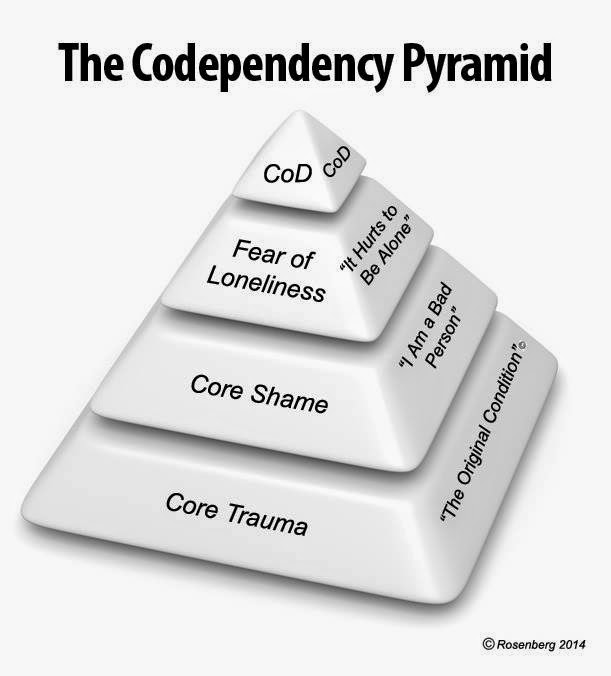 You may be living with a psychopath, a manipulator and being abused. One of the most important criteria is that if the relationship is poisonous for you, leave it.
You may be living with a psychopath, a manipulator and being abused. One of the most important criteria is that if the relationship is poisonous for you, leave it.
If you sometimes manage to come to an agreement, if you sometimes come out of a conflict strong, heard and understood, even if you have not agreed, this is a good sign that you can be together and find healthy ways to respond.
Relationships are almost impossible to build with unhealthy people. No matter how hard we try, they are stronger than us. Psychopaths, sociopaths, manipulators, malignant narcissists are most often not able to be in a healthy partnership.
I often think that less physics, mathematics, chemistry should be taught at school and psychological diagnostics should be introduced in order to understand by communication whether it is worth starting a relationship with a certain person. If he constantly deceives you, lets you down, makes you guilty, but you don’t do this, then you need to think about leaving the relationship.
Every relationship is unique. Perhaps a masochistic woman will be glad to endure humiliation. But if she goes to a psychologist, she will return to a healthier lifestyle. That is why some are afraid to turn to specialists, because psychotherapy returns a person to their desires and needs and destroys unhealthy, destructive relationships.
If you go to a psychologist, it is important to keep a sober look. You need to evaluate how much what the psychologist says is right for you. A specialist may advise you to leave a husband who beats you, but you can’t for some reason. Then you should say: "I can't leave, but what should I do in this situation?" No one is a better expert on your life than yourself. Try to make it more conscious, happy and clear. Then, quite possibly, you will not need the help of specialists.
What is true love
- True love is a healthy attachment. This is an opportunity to be in a truly intimate relationship, this is the responsibility of partners to each other, this is passion, honesty, the ability to remain faithful, despite the presence of other people around, this is recognition of the uniqueness of a partner for oneself, this is a desire to be together and a readiness for long-term relationships with an understanding of their involvement and willingness to invest in relationships. Such simple things are fundamental to such a relationship.
Such simple things are fundamental to such a relationship.
A healthy addiction is when I can spend time with an important person for me, but then I go to work and do it quietly, because I don’t think every second where my partner is, whether he is cheating on me. There is peace because I know that our relationship is preserved, we have obligations, that he is waiting for me. I know that he went on a business trip for a month, but every evening he calls me on Skype. Therefore, true love is a good combination of intimacy and freedom.
Codependent Relationships: 8 Steps to Healing a Painful Relationship
Table of contents:
Co-dependent relationship is when next to your loved one you feel bad, hurt and empty. When you depend on your partner emotionally and lose yourself.
Initially, I want to clarify that this article will talk about addiction, which causes harm, destroys relationships and us, in which suffering takes over, lowering our self-esteem.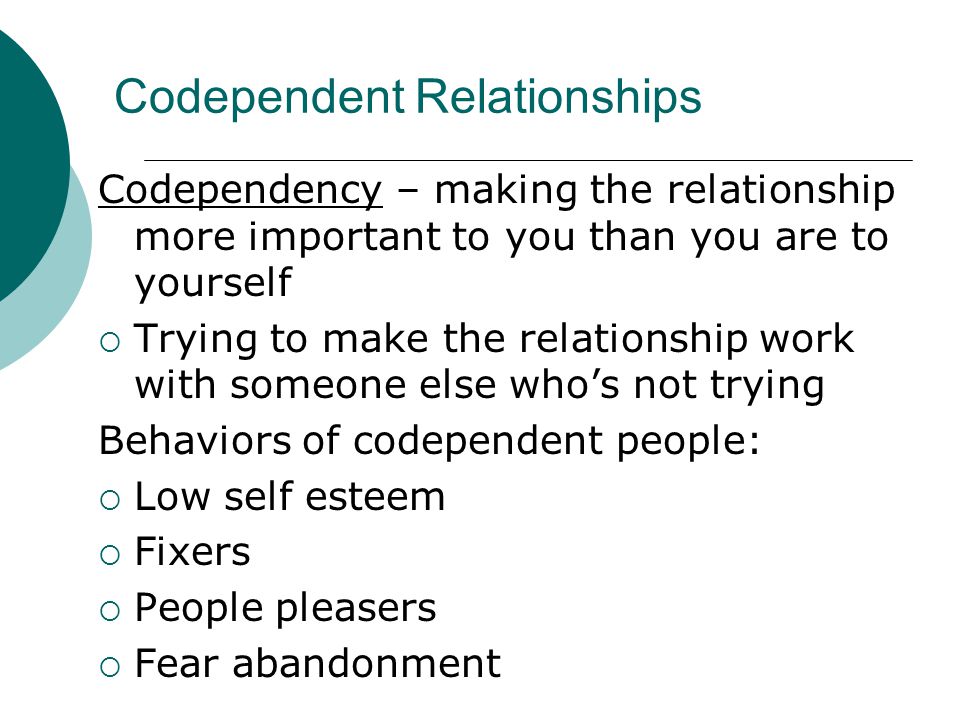
Since we are all in a certain dependent relationship:
- parents-children;
- friends; familiar;
- male and female,
- after all, master and kitty.
Therefore, not all dependent relationships require healing. Sometimes it is a pleasant addiction that brings us happiness. But, if your relationship makes you a victim, a hysteric, lowers self-esteem, causes feelings of anxiety and fear, then these steps are for you.
How to get rid of love addiction? 7 psychological techniques
back to index ↑
Spending a huge amount of time communicating with men and women, I came to the conclusion that one of the leading and sore topics is the problem of love addiction. Of course, the manifestation of the disease as such in women is much more common.
But men should not be ignored either, because in my practice, I also saw the stronger sex with tears in their eyes, suffering from suffocating addiction.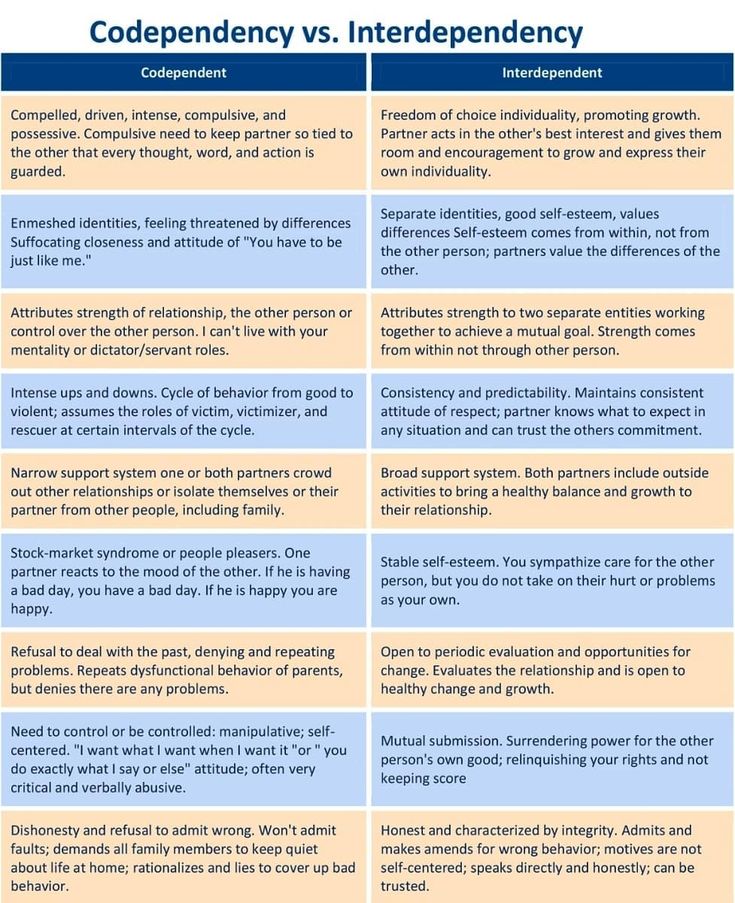 And everyone has their own reasons, mostly from childhood. And this dependence extends to all spheres of our life: relationships, self-realization, career, health.
And everyone has their own reasons, mostly from childhood. And this dependence extends to all spheres of our life: relationships, self-realization, career, health.
The path of healing from addictive relationships is very long and difficult. But it exists if the one who suffers from addiction understands that fixing, changing, fighting, manipulating, controlling, sacrificing, demanding - all this does not work! We need to finally start healing ourselves. And this healing has only two options and the third is not given:
- either continue searching for the ideal partner and fall into the same dependent relationship, since the question is not in the partner, but in self-identification.
- Or, finally, take on an unbearably difficult, responsible task, take responsibility for your life, understand that the root of the problem is inside and stop looking for a partner until you analyze, heal, heal your soul, your “I” . Until you start to identify yourself as a worthy person.
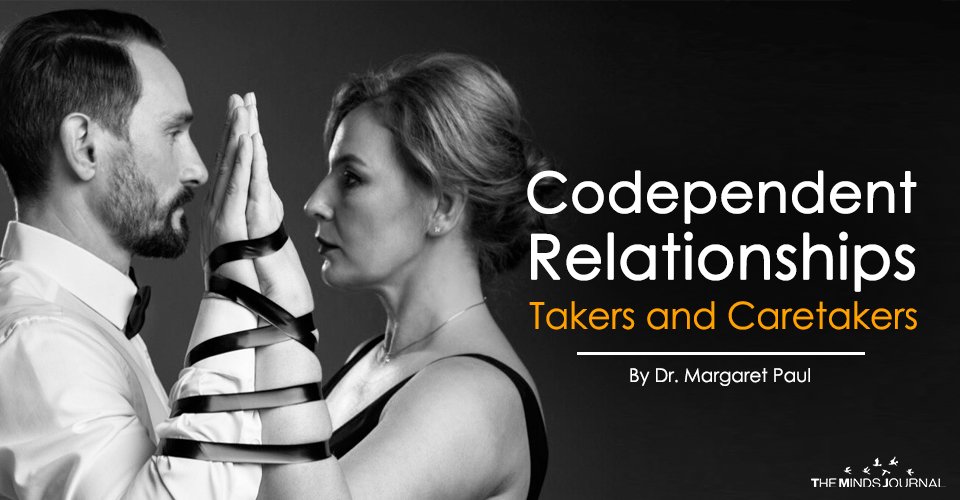
back to index ↑
Steps to recovery from codependent relationships
- If you recognize a problem, don't be alone with it. Seek help from a specialist.
- Put your healing first among all tasks. Let this be your goal.
- Daily devote time to spiritual development, the development of yourself as a person. Begin to know yourself and your desires every day of your life.
- Give up bad habits such as control and manipulation.
- Begin to recognize your problems and shortcomings. Perfect people do not exist, and this is the norm.
- Analyze what qualities you lack to achieve the goal and start working on their development.
- Think about what makes you addicted, what you depend on and start working on eliminating this cause!
- Become selfish. Start living for yourself. Love yourself in this state.
- Every time try to do something that is not natural for you. Try to overcome small barriers and fears daily.
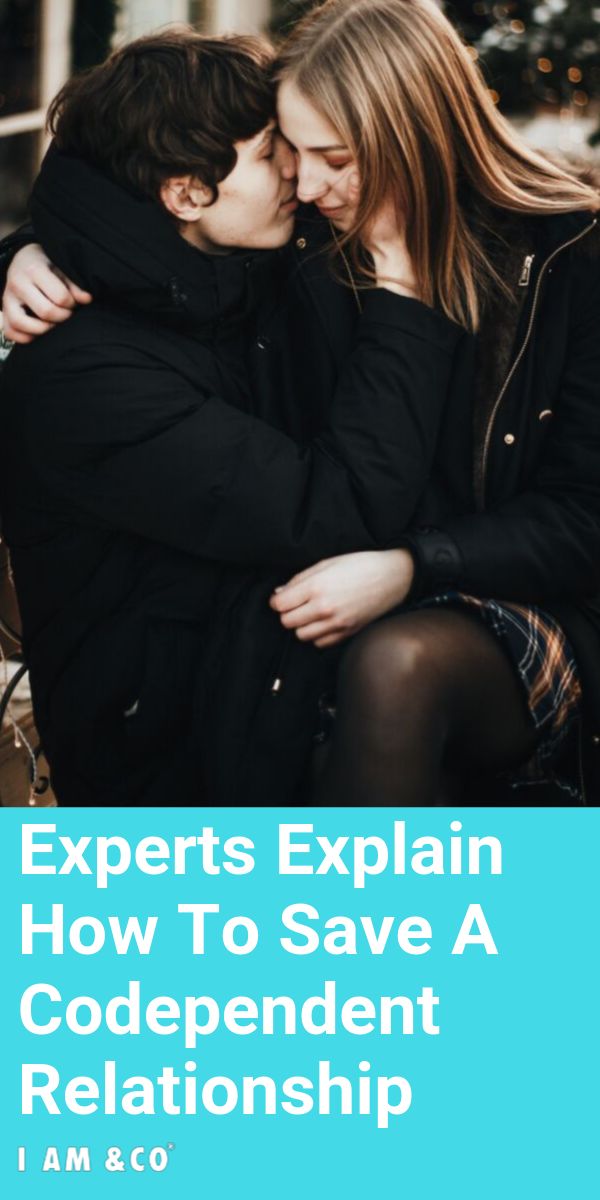
Why do I put seeking help in the first place? In fact, this is the first step you take towards admitting that you have problems. To the realization that it is you who are responsible for this, and this is the step that allows you to receive the first response information and support. After all, it may not even be a psychologist, but, for example, a book, or a psychological forum. The main thing is to understand that you are not alone in this. And there are people just like you. And most importantly, there are those who coped with this.
The most frightening thing for many is that it is imperative to leave a partner. But in fact, psychotherapy or self-healing absolutely does not require this. The fact is that after the expiration of time, healing yourself, doing the steps that are described above, you yourself will understand whether you should leave or not. Relationships will begin to change in proportion to what you do and how you change.
back to index ↑
Make healing an end in itself
Just imagine how much time we spend on correcting, changing, proving something to our partner? How many are ready to endure disrespect for themselves, to wait for something to change.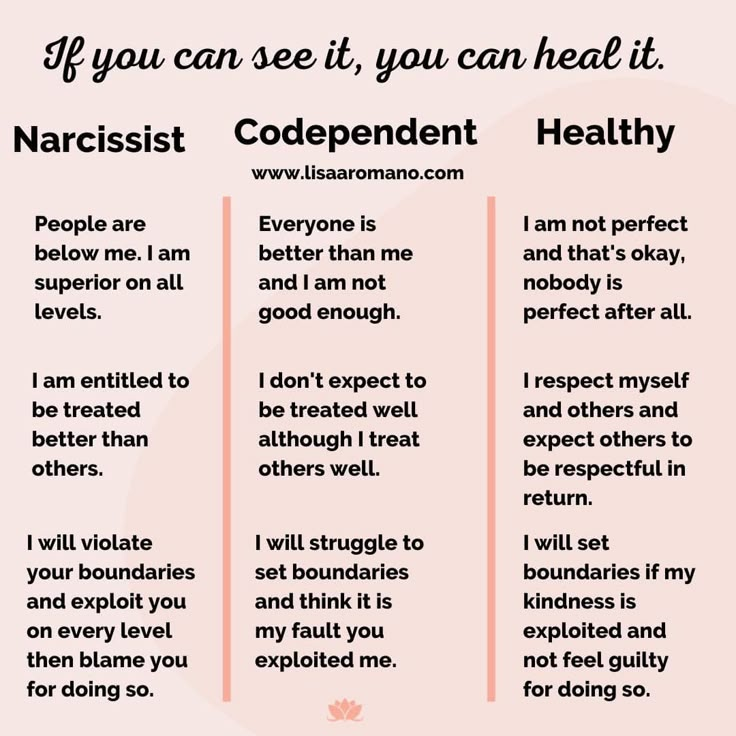 So, why not direct these forces to yourself and, finally, allow yourself to live the way you deserve it? But for this you need to gain strength and really want.
So, why not direct these forces to yourself and, finally, allow yourself to live the way you deserve it? But for this you need to gain strength and really want.
At this stage, it is very important to recognize why this pattern of behavior exists in your mind. Analyze your childhood memories, parental behavior. What fears and attitudes came into your life from childhood?
Healthy and fulfilling relationships begin with self-love
back to index ↑
Develop as a person
The next step is a base so that you can build normal healthy relationships in the future. And in principle, lived regardless of the presence of relationships in your life. It is self-development that will make it possible to avoid addiction in the future.
Developing yourself, you become a strong and self-sufficient person who understands what she needs, what she wants, what she can do, and what is impossible in relation to her. Stepping on the path of development, you expand your horizons, make positive acquaintances, which are necessary like air, in this state of affairs.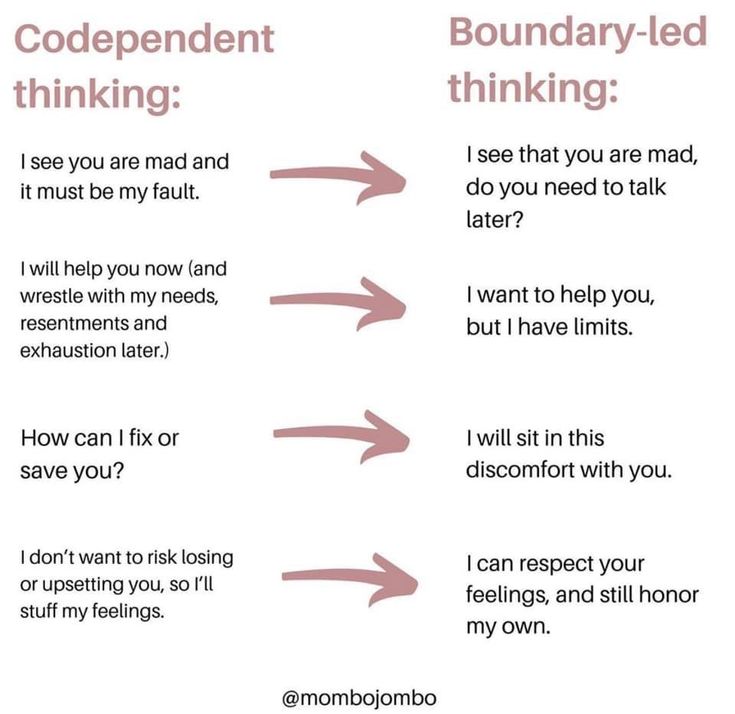
The most important thing in this is that step by step, you find what gives you vitality and confidence. Discover a kind of activity that brings you pleasure and prosperity. You let people into your world who will positively influence your emotional state.
back to index ↑
Refuse manipulation and control
This means to stop artificially approving and praising. Stop taking responsibility for your partner's life. Stop hosting and advise where you are not asked about it. You should not turn relationships into role-playing games, such as "mother and child."
Stop following, learn to respect space and each other's rights. Reward each other with the right to be adults in their own right. After all, the meaning of life is not in relationships. Relationships are a wonderful addition to life.
When mind and libido live separate lives
back to index ↑
Understanding one's problems and shortcomings
Why is this important? Usually, at consultations, I ask you to write a list of what is a problem, what shortcomings a person has.
